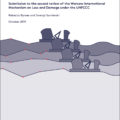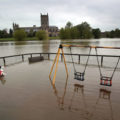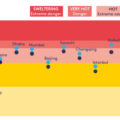Addressing the impacts of climate change through an effective Warsaw International Mechanism on Loss and Damage
This paper is a submission to the second review of the Warsaw International Mechanism (WIM) on Loss and Damage under the United Nations Framework Convention on Climate Change, which will take place at COP25 in December. The submission looks at the Loss and Damage policy debate, how it relates to other international frameworks and efforts in the areas of mitigation, adaptation, disaster risk reduction and sustainable development, and identifies how the WIM can be most effective. read more »








